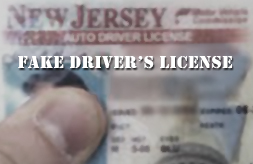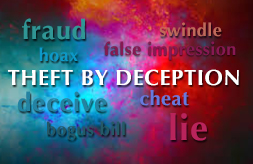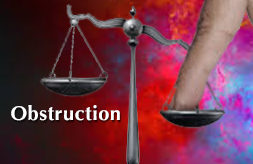1. Can cannabis facilities operate within “Drug-Free School Zones?”
Experienced Marijuana Distribution Attorney defends charges of marijuana possession with intent to distribute.
Stephen A. Gravatt, Esq.
Attorney-at-Law
565 NJ 35
Middletown, New Jersey 07748
(732)-337-7922
www.njdwicriminaldefenseattorney.com
Marijuana Distribution – An experienced marijuana defense attorney can effectively defend you if charged with possession of marijuana with intent to distribute. I have obtained noncustodial probation for many clients helping them avoid jail, excessive fines, even criminal conviction for marijuana distribution.
Q&A NJ Cannabis Legalization
1. Can cannabis facilities operate within “Drug-Free School Zones?”
A. The Comprehensive Drug Reform Act of 1987 (CRDA) (N.J.S.A. 2C:35-1 et seq.) makes “distributing, dispensing or possessing with intent to distribute a controlled dangerous substance or controlled substance analog while on any school property used for school purposes that is owned by or leased to any elementary or secondary school or school board, or within 1,000 feet of such school property or a school bus, or while on any school bus,” a crime of the third degree. This 1,000-foot buffer is what is often referred to as the “drug-free school zone.”
The recently adopted cannabis legalization law changed the definition of “controlled dangerous substance” within the CRDA to preclude legalized cannabis. This change means that a licensed and authorized cannabis facility may operate within the 1,000-foot drug-free school zone.
It must be noted, however, that while cannabis is no longer considered a controlled dangerous substance under New Jersey law, Federal law continues to identify all forms of marijuana, including medicinal marijuana, as a Schedule 1 controlled substance that has potential for abuse and diversion pursuant to the Controlled Substances Act, 21 U.S.C. §§ 801 et seq.
Under the federal Controlled Substances Act, “distributing, possessing with intent to distribute, or manufacturing a controlled substance in or on, or within 1,000 feet of, the real property comprising a public or private elementary, vocational, or secondary school or a public or private college, junior college, or university, or a playground, or housing facility owned by a public housing authority, or within 1,000 feet of a public or private youth center, public swimming pool, or video arcade facility,” remains a Federal criminal offense.
2. Can a municipality adopt an ordinance regulating cannabis delivery services?
A. Municipalities cannot prohibit the delivery of cannabis items and related supplies by a delivery service. A municipality may adopt an ordinance regulating the number of cannabis establishments, distributors, or delivery services located within the municipality. And, while a municipality may also adopt an ordinance regulating the location, manner, and times of operation of cannabis establishments and distributors, they cannot regulate the time of operation of delivery services. Only the Cannabis Control Commission can regulate delivery services.
3. What kind of tax can a municipality impose on cannabis establishments? And, do vertically integrated facilities avoid certain local taxes?
A. A municipality may impose a transfer tax on the sale of cannabis or cannabis items by a cannabis establishment located within the municipality. The tax may be imposed on:
– Receipts from the sale of cannabis by a cannabis cultivator to another cannabis cultivator;
– Receipts from the sale of cannabis items from one establishment to another cannabis establishment;
– Receipts from retail sales of cannabis items by a cannabis retailer to retail consumers; or Any combination thereof.
A municipality is free to set its own tax rate but in no case can the rates exceed:
– Two percent of the receipts from each sale by a cannabis cultivator;
– Two percent of the receipts from each sale by a cannabis manufacturer;
– One percent of the receipts from each sale by a cannabis wholesaler; and
– Two percent of the receipts from each sale by a cannabis retailer. If a municipality adopts an ordinance providing for a transfer tax as noted above, the ordinance must also provide for a user tax. This user tax must be equivalent to the transfer tax rates, on any concurrent license holder, operating more than one cannabis establishment. The user tax allows for tax parity, by preventing vertically integrated cannabis establishments from avoiding the transfer tax.
4. What are the projected revenues of the local transfer and user tax?
A. It is difficult to produce a projection for local transfer and user tax revenue for many reasons. First, any local tax revenue projection would require an analysis of the demand for cannabis. Demand is difficult to determine given it could be greatly impacted by cannabis legalization efforts in surrounding states. The less novel legalized cannabis becomes the less opportunity there is for “cannabis-tourism.” Second, it is unknown at this time the number of each class of license that will be approved by the Cannabis Control Commission. Given these uncertainties, any revenue projections should be carefully scrutinized.
5. What kind of license does a cannabis testing facility require? Can a municipality prevent cannabis testing facilities operating within their boundaries the same they do other license holders?
A. It is the responsibility of the Cannabis Control Commission to promulgate regulations regarding accreditation and licensure criteria for cannabis testing facilities. There is no current law or regulation that provides for municipal approval as part of the licensing requirements for cannabis testing facilities. Nor is there specific authority for a municipality to outright prohibit testing facilities within their boundaries like there is for cannabis establishments. Cannabis testing facilities operate much like any other laboratory or research facility, and are subject to the same land use and zoning requirements. There are already a number of cannabis testing facilities operating within the state, providing their services to medicinal cannabis facilities. Under the newly enacted law, currently licensed medicinal cannabis testing facilities are authorized to expand their operations to include usable cannabis, provided they certify that they are able to adequately perform the tests for the two types of cannabis, and that it won’t impede their ability to provide medicinal testing.
6. Can currently licensed alternative treatment centers begin offering their services for non-medicinal purposes? If yes, is municipal approval required prior to the alternative treatment center expanding?
A. Certain licensed alternative treatment centers are deemed to concurrently hold certain class of cannabis licenses, which would authorize them to offer their services for non-medicinal purposes. Put another way, certain medicinal cannabis facilities would be able to provide both medical and recreational cannabis services.
Alternative treatment centers however, cannot begin offering non-medicinal services without first receiving written approval from the municipality in which the proposed establishment or delivery service, or distributor is located.
7. Can a municipality prohibit the consumption of cannabis on public property and in public places?
A. The consumption of cannabis items through smoking, vaping, or aerosolizing is prohibited in all places where tobacco smoking is prohibited under the NJ Smoke-Free Air Act, and any indoor public place as that term is defined in N.J.S.A. 26:3D-57 such as bars, restaurants and sport venues, to name just a few.
A municipality may adopt an ordinance making it unlawful for any person 21 years of age or older to consume cannabis through other means, (i.e., edibles) in a public place, including any indoor public place as the term is defined in N.J.S.A. 26:3D-57. Because of the broad definition of public place as defined by N.J.S.A. 26:3D-57, a municipality in effect has the authority to restrict the consumption by any means, to a private residence.
8. Will cannabis cultivators be eligible for farmland assessment?
A. The Law specifically prohibits a cannabis cultivator from operating or being located on land that is valued, assessed or taxed as an agriculture or horticultural use pursuant to the Farmland Assessment Act of 1964.
9. Can cannabis by cultivated on preserved farmland?
Probably, as medical cannabis has been considered an agricultural crop based on New Jersey’s agricultural statutes, it would stand to reason that recreational cannabis would also meet this definition. However, because cannabis is prohibited at the federal level, it has been the Natural Resources Conservation Service’s position to not permit the growing of medical cannabis on any farm that has been preserved with federal Farm and Ranch Lands Protection Program funding. This policy would likely extend to non-medical cannabis growing as well.
10. Is the growing and processing of cannabis eligible for Right-to-Farm protection?
A. No, the Right to Farm Act requires that commercial farms be in compliance with all applicable federal or State statutes or rules and regulations to qualify for right-to-farm protection. Because growing cannabis is prohibited by federal law, the growing and processing of cannabis is not protected under the Right to Farm Act.
Penalties
| Offense | Incarceration | Fines | |
| Possession of Marijuana 21 years or older | |||
| 6 oz or less is legal to possess. | Is Legal | 0 | 0 |
| More than 6 oz. | Is a Crime | 1.5 years | $ 25,000 |
| Possession Hash & Concentrates 21 years or older | |||
| 21 years or older possession of 17 g or less is legal | Is Legal | 0 | 0 |
| Possession of more than 17 g | Is a Crime | 18 months | $ 25,000 |
| Distribution of Marijuana | |||
| 1st offense | Warning | ||
| Less than 1 oz (subsequent offense) | Is a Crime | 18 months | $ 25,000 |
| More than 1 oz – less than 5 lbs. | Is a Crime | 3 – 5 years | $ 25,000 |
| 5 – to less than 25 lbs. | Is a Crime | 5 – 10 years | $ 150,000 |
| 25 lbs. or more | Is a Crime | 10 – 20 years | $ 300,000 |
| Within 1000 feet of a school or school bus | Is a Crime | 3 – 5 years | $ 150,000 |
| Cultivation of Marijuana | |||
| 1 oz – less than 5 lbs. (less than 10 plants) | Is a Crime | 3 – 5 years | $ 25,000 |
| 5 – less than 25 lbs. (10 – less than 50 plants) | Is a Crime | 5 – 10 years | $ 150,000 |
| More than 25 lbs. (50 plants or more) | Is a Crime | 10 – 20 years | $ 300,000 |
| Hash & Concentrates | |||
| Making, distributing, or possessing of less than 5 g (first offense) | Warning | ||
| Making, distributing, or possessing of less than 5 g (subsequent offense) | Is a Crime | 18 months | $ 25,000 |
| Making, distributing, or possessing of more than 5 g – less than 1 lb. | Is a Crime | 3 – 5 years | $ 25,000 |
| Making, distributing, or possessing of 1 lb. – less than 5 lbs. | Is a Crime | 5 – 10 years | $ 150,000 |
| Making, distributing, or possessing of 5 lbs. or more | Is a Crime | 10 – 20 years | $ 300,000 |
| Paraphernalia | |||
| Possession or use of paraphernalia | Is Legal | ||
| Sale of paraphernalia | Is a Crime | 18 months | $ 10,000 |
Can an experienced marijuana distribution attorney dismiss the charges or mitigate the penalties?
Yes. I have been a marijuana distribution attorney for approximately 29 years. I have helped many people charged with marijuana possession with intent to distribute avoid conviction, avoid jail, even avoid a felony criminal record for marijuana distribution. Each case is fact specific and must be thoroughly reviewed. Sometimes the State cannot prove intent to distribute beyond a reasonable doubt. Sometimes the charges can be downgraded to something less consequential.
The important thing is that you retain an experienced marijuana distribution attorney to defend you.





